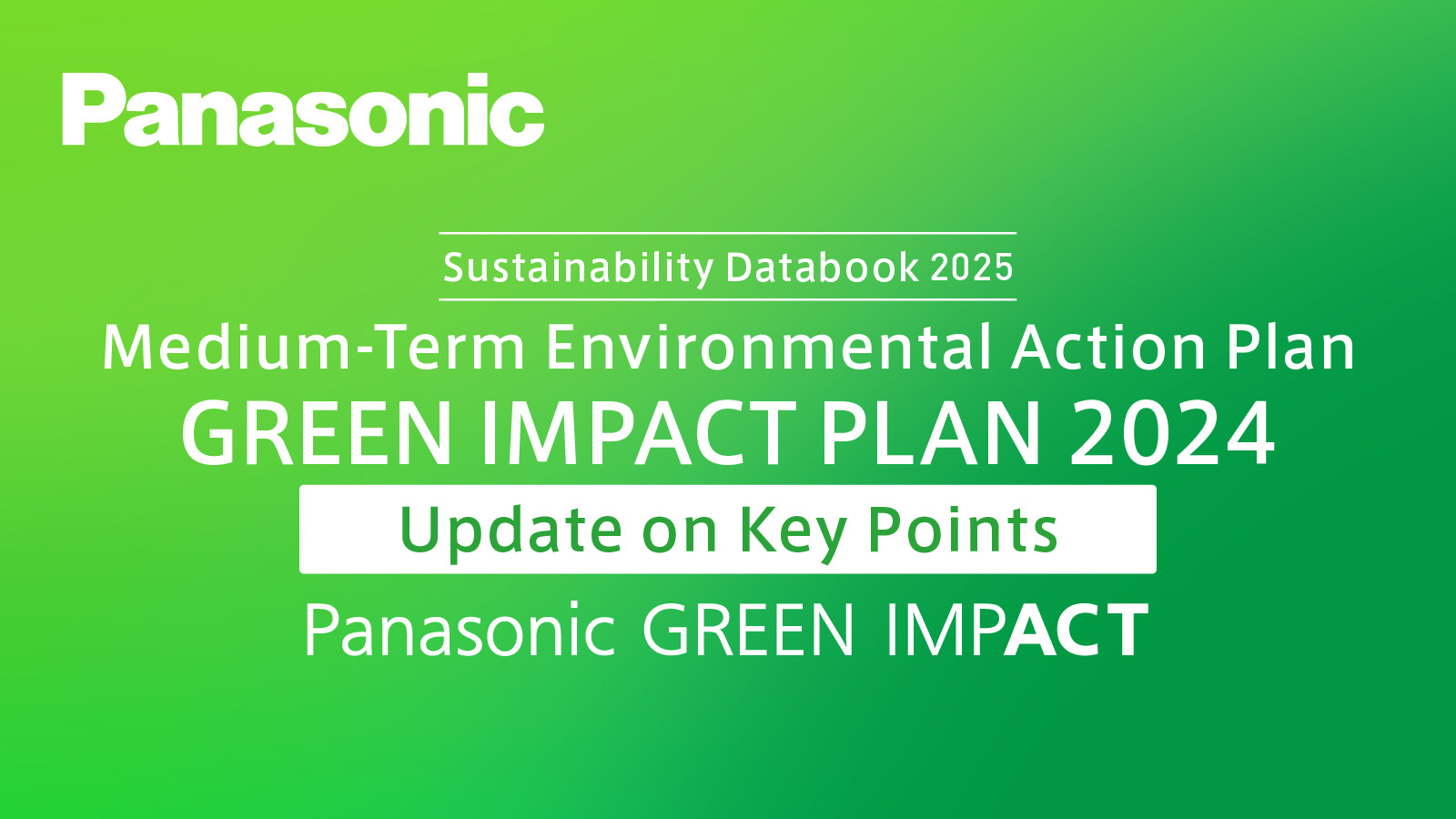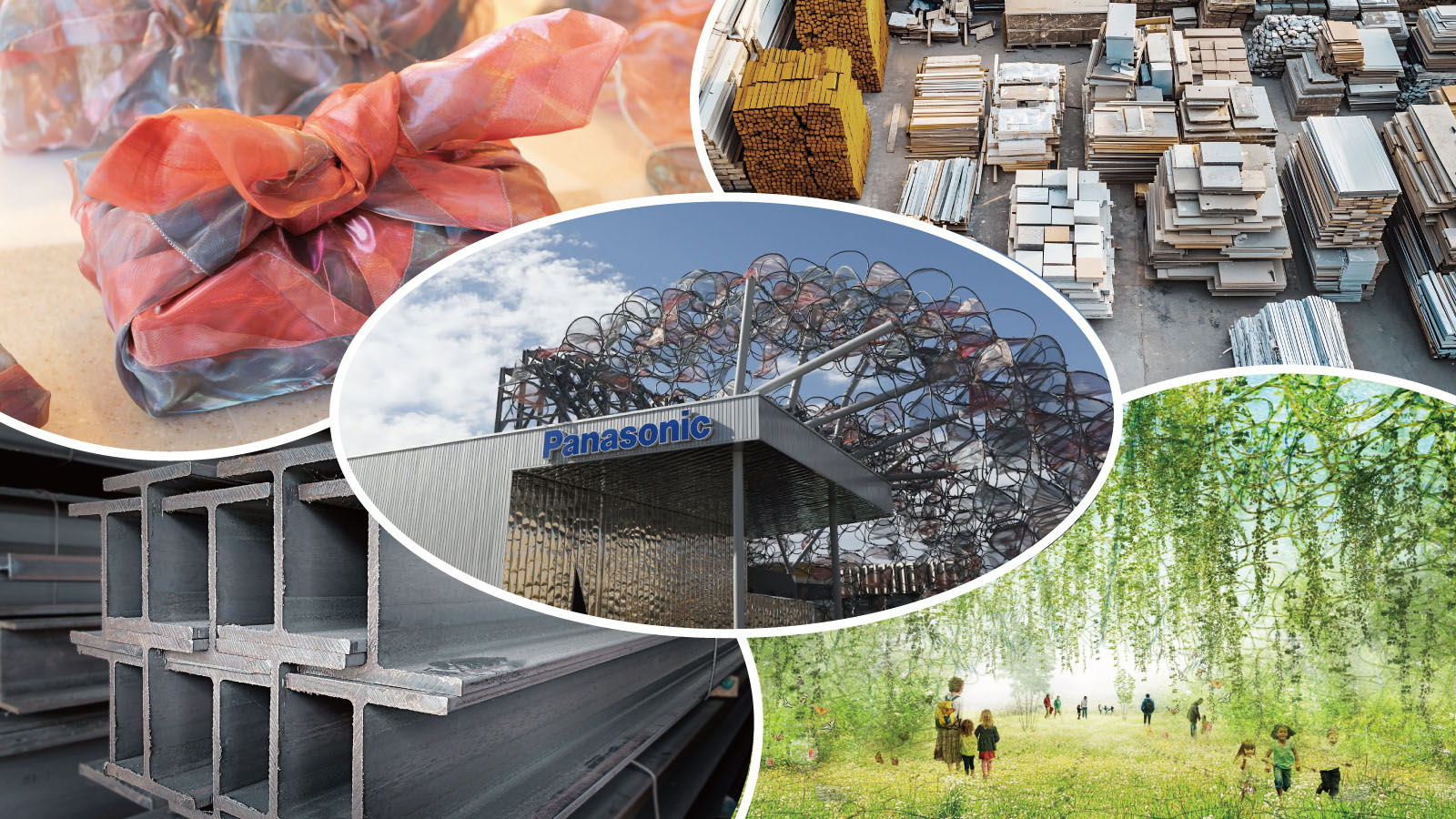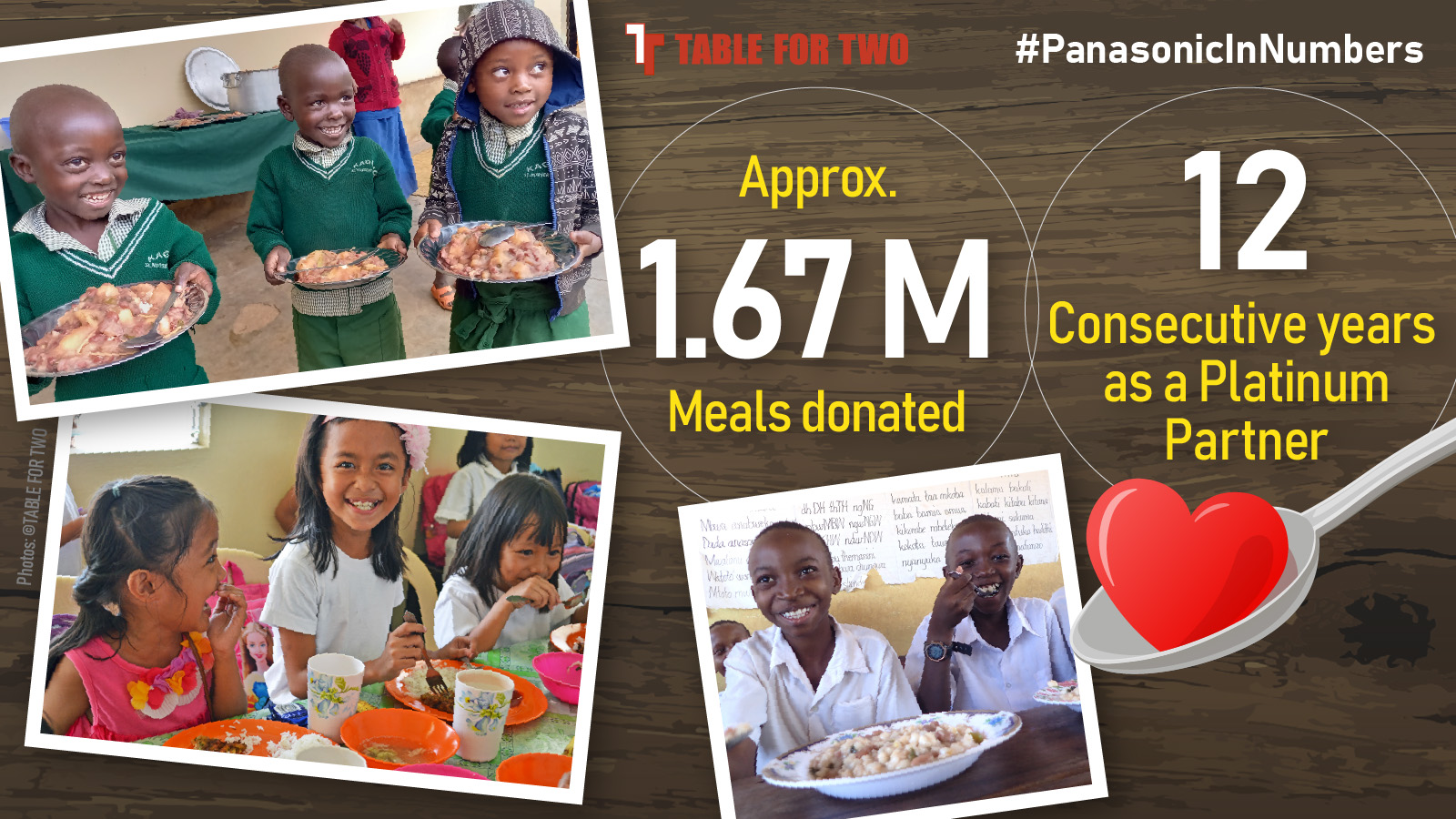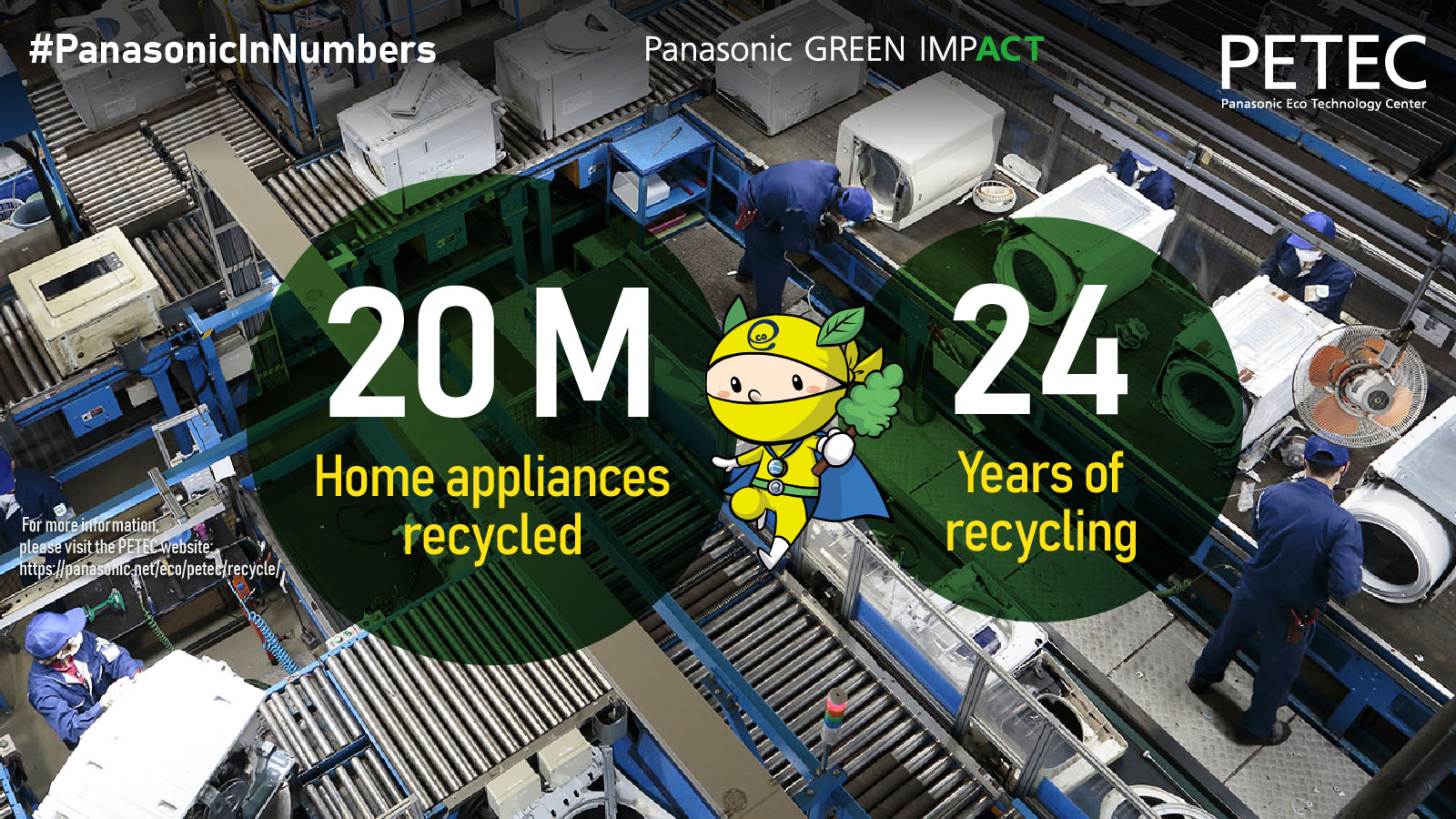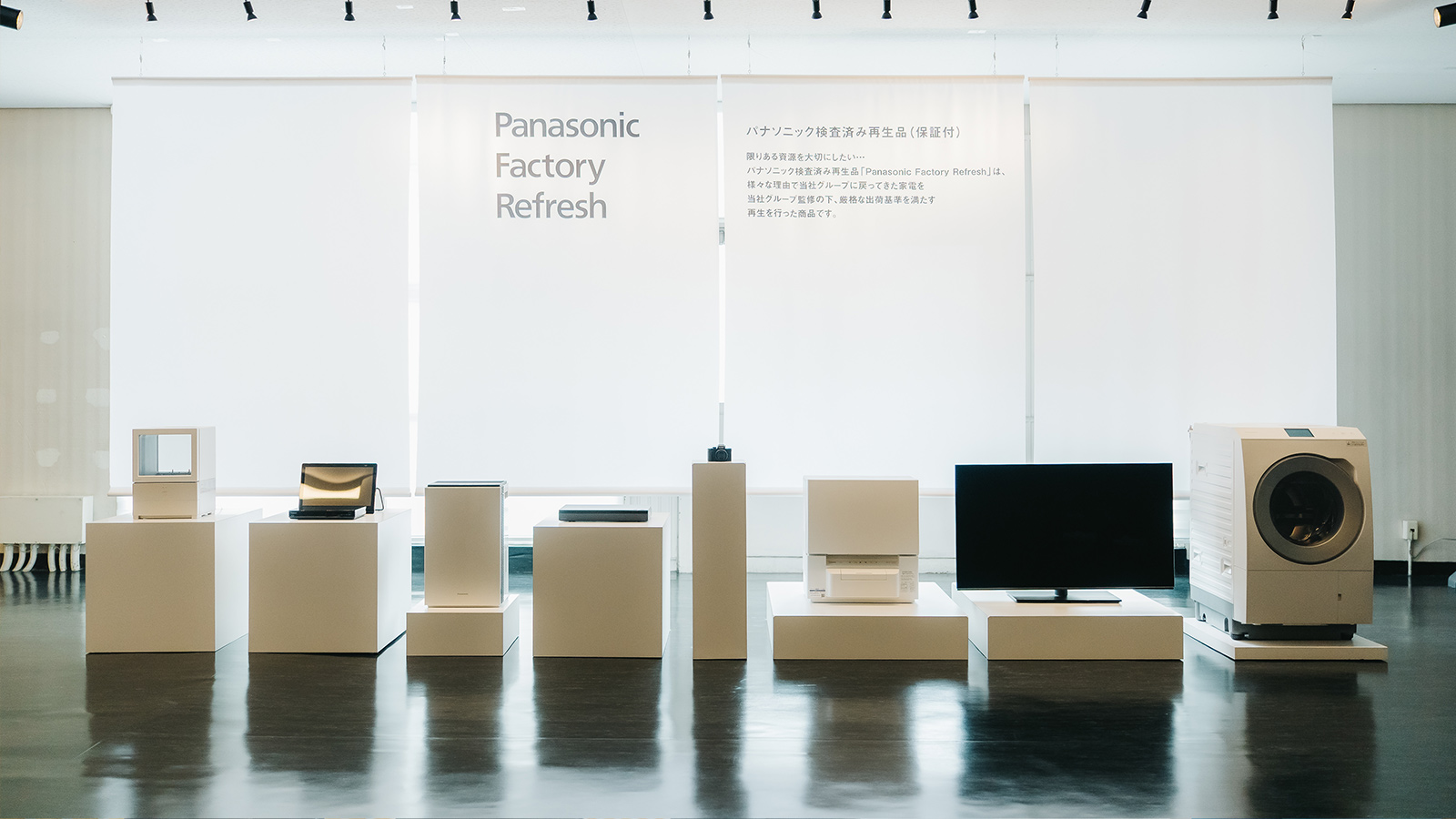The first carbon neutrality initiative to be introduced was Panasonic’s H2 KIBOU FIELD RE100 demonstration facility in Kusatsu, Shiga Prefecture. RE100 is a revolutionary approach to integrating hydrogen cells, solar panels, and batteries to create a seamless renewable energy system.
Shinada explained that the demonstration facility began operating in April 2022, and since then has been powering Panasonic’s fuel cell factory without interruption, regardless of weather conditions or fluctuations in power demand—a success that has attracted attention from around the globe.
“We’ve hosted some important guests over the past year, such as the Federal President of Germany, the British Consul General, and various governmental and business delegations,” explained Shinada. “These visits reflect the growing global interest in our efforts to achieve a sustainable future.”
Kousuke Kameda, Senior Manager of EU Hydrogen Business Promotion Office, Electric Works Company, said: “By combining pure hydrogen fuel cells, solar panels, and storage batteries, we have created a self-sustaining energy system. Managed by our unique Energy Management System, it produces just as much energy as we consume, adjusting power output in line with fluctuations in demand.
“This integration of pure hydrogen fuel cells addresses the limitations faced by solar panels during unfavorable weather conditions, ensuring stable power supply, while our Energy Management System, refined through our first mover advantage and operational data, extends equipment lifespan and reduces running costs, giving us a competitive edge.”
“In line with our commitment to a sustainable future and an emerging hydrogen society, we plan to expand the RE100 solution to buildings, commercial facilities, smart towns, and other aspects of everyday life,” said Kameda. “Our goal is to foster a global carbon-neutral society and provide sustainable, resilient, and efficient energy solutions.”
